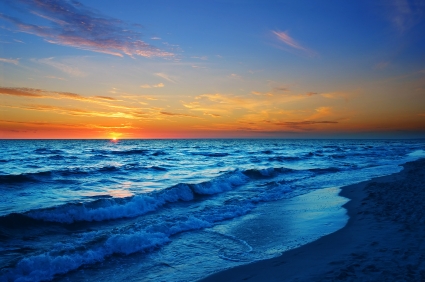Recently, I read about a professor at Columbia who teaches a course about the signs of the apocalypse. With the financial collapse and threats of a swine flu pandemic in mind, he told the New Yorker he decided to create the class because “now seemed like a good time.”
I don’t know if Professor Taussig’s students have looked toward the oceans for signs of the apocalypse, but if they do, the students will find unsettling news coming from the marine world. Whether you believe in end times or not, the oceans are sending clear signals that they are in distress.
In Chile alone, a trio of strange occurrences has unsettled scientists and observers in recent weeks. More than a thousand dead penguins were found on a southern beach, followed by tons of dead sardines so smelly that schools were forced to close. Lastly, thousands of rare flamingos abandoned their nests, leaving 2,000 chicks to die.
Elsewhere on the planet, the ocean throws up another mystery. In California, hundreds of emaciated seabirds, mostly Brandt’s cormorants, littered beaches in a dozen locations early in May in perhaps another example of Hungry Oceans.
And as summer approaches, we can expect more curiosities from the sea. Jellyfish swarms thrive in warm water, and vast glowing herds will most likely create a stir again this year, much as they did when a swarm killed 100,000 salmon in pens off Northern Ireland. Arctic ice will probably shrink as far or even further than recent record-breaking years.
A scientist may shrug her shoulders when you ask what is causing these strange phenomena to happen. She also may say it could have something to do with human intervention. After all, less than four percent of the oceans remains untouched by human activity. Overfishing, pollution and global warming have thrown the oceans out of whack, resulting in an increasing number of unsettling sights like the starved seabirds on our beaches.
I like to think positively, though. Fish populations have demonstrated the ability to rebound once fishing pressure backs off, and simple habitat protection can ensure that diverse marine ecosystems thrive. We have the ability to reduce our carbon footprint, if leaders and industry find the will.
So is this the apocalypse? Probably not. A wake-up call is more like it – and it’s one we should not ignore.



